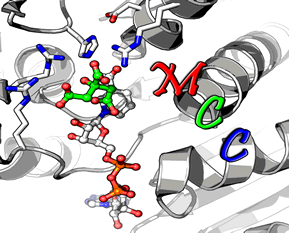Why Cures
The “Vision and Change in Undergraduate Biology Education: A Call for Action” and its following report [12], building on prior publications over the past 15-20 years, recommends 1) integration of core concepts and skills throughout the curriculum. Research experiences have major effects on persistence in science as well as positive outcomes in conceptual understanding and skills development all essential for effective workforce development. CUREs are a high impact practice that encorages deeper critical thinking and retention for students. Simply put, CUREs are a way to increase access to the experience of research that allows students to be scientists. We are interested in growing our community and are part of the CUREnet network.
cures basics
There are several excellent publications on the important elements of CUREs and assessment of the results of these activites. Many are found on the CUREnet website. A few specific publications include "Insights from a Convocation: Integrating Discovery-Based Research into the Undergraduate Curriculm", a review on CUREs for protein-based biochemistry, A practical guide to course-based undergraduate experiences, and "Assessment of course-based undergraduate research experiences: a meeting report". There are many others...
Key elements of a CURE are reported as - the use of scientific practices, discovery, broadly relavent or important work, collaboration and iteration. Others also include seven components of authentic research including: novel questions, student-generated questions, development of a hypothesis, experimental design and data collection, data analysis and presentation of research.
We are interested in the impact of collaboration between institutions and the durration of a CURE (course long or modular) on student learning gains. The definitions and example syllabi for these CUREs are found in the Faculty Resource link (Model Syllabi).
The bottom line is that the role of the instructor is minimized, there is an unknown scientific outcome and the course is designed where students are responsible for most of the work.
MDH Community
There remain many unanswered fundamental questions about MDH to be investigated. Some examples are i) Folding and oligomeric structure (while most MDHs are dimeric, some are monomers and others form tetramers, ii) Substrate specificity (there exist MDH isoforms with LDH like activity, or NADPH (vs. NADH) affinity), iii) Allosteric regulation (some forms are regulated by citrate inhibition and/or substrate inhibition), iv) Metabolon formation (mammalian mitochondrial MDH but not cytosolic MDH can interact with other proteins including itrate synthase) and v) Adaptation and evolution. Although some forms are well characterized structurally, the relationship of such structural and functional features are not well defined across a range of evolutionarily distinct organisms. Availability of MDH sequences for a wide array of organisms lends itself to bioinformatics approaches to develop hypotheses that can be tested experimentally. Another important aspect of MDH is that it is a relatively stable enzyme whose activity only requires a spectrophotometer capable of measuring absorbance at 340 nm, a resource nearly all undergraduate laboratories have availible.
Current MCC participants include: The MDH CUREs community involves a broad spectrum of 15 faculty from 12 institutions (three from research intensive institutions, two from community colleges and seven from primarily undergraduate institutions). PUI faculty are: Ellis Bell, Joseph Provost, Jessica Bell and Anthony Bell (U. San Diego), John Rakus (Marshall U), Amy Parente (Mercyhurst), Kate Huisinga (Malone U), Kristin Fox (Union College), Celeste Peterson (Suffolk U), and Kevin Callahan (St. John Fisher College). Community College faculty are: Tamara Mans (North Hennepin CC) and David Hecht (Southwestern CC). Research-intensive institution faculty are: Amy Springer (U Mass Amherst), Laura Christian (West Virginia U) and Jing Zang (U of Nebraska Lincoln).
Interested in joining? Contact josephprovost@sandiego.edu, jessicabell@sandiego.edu or jbell@sandiego.edu
